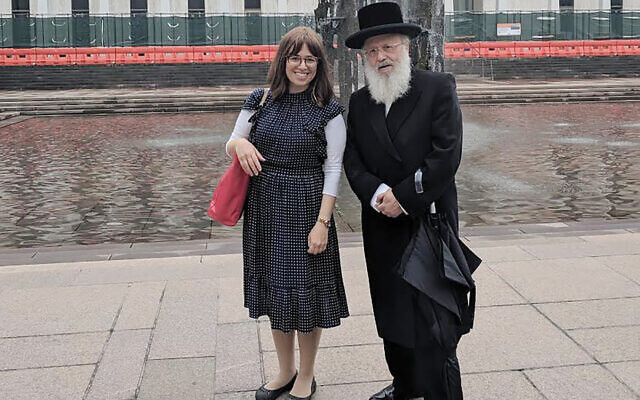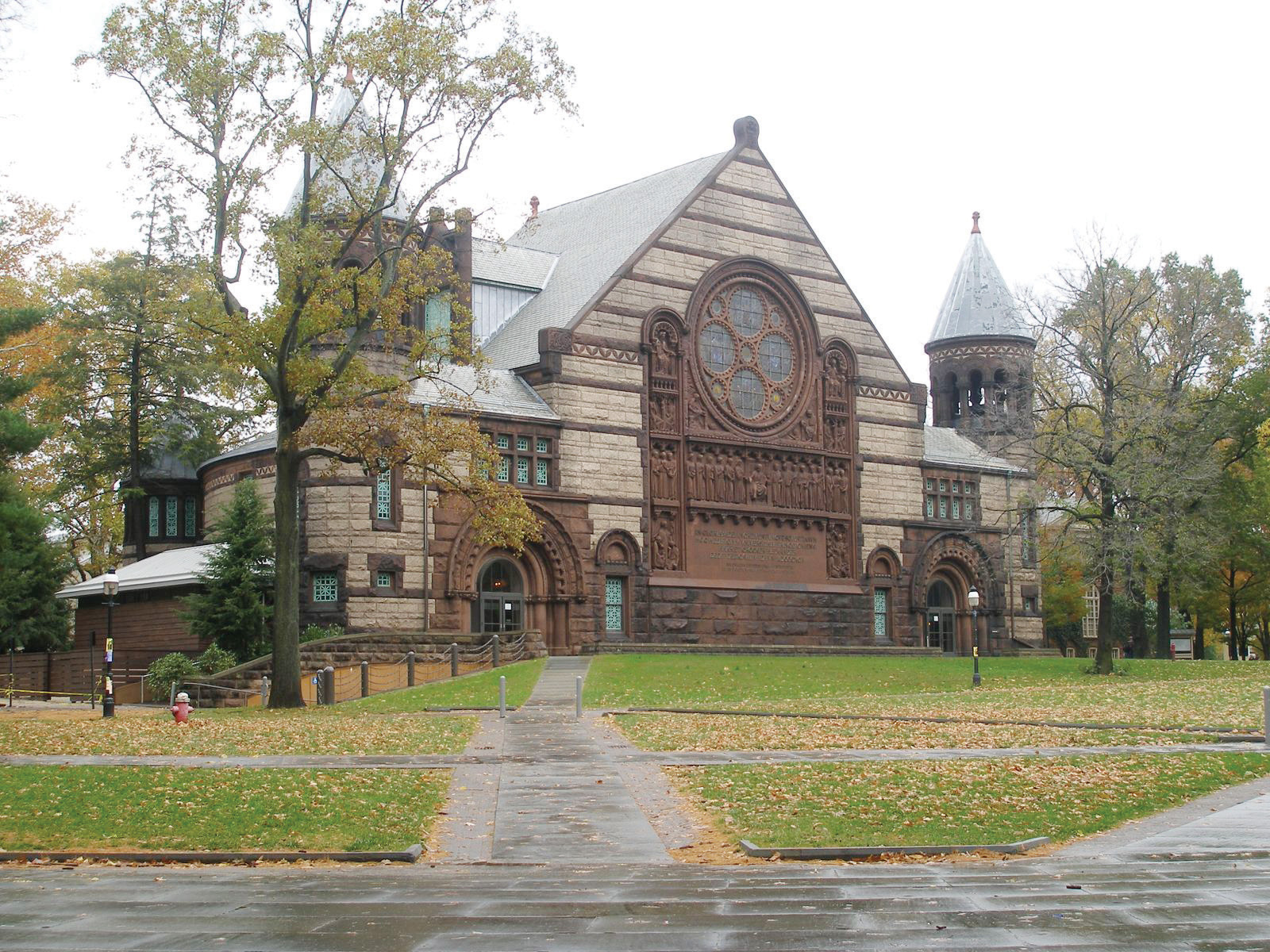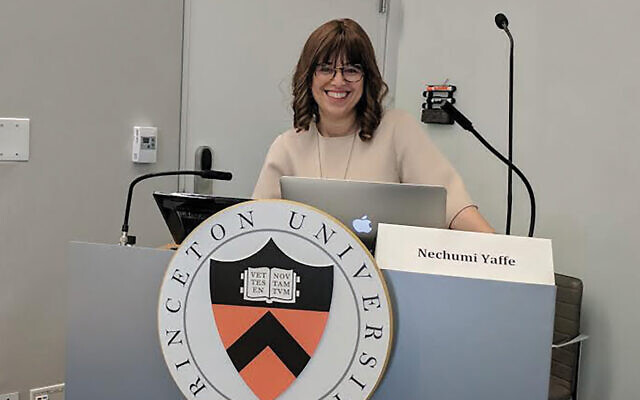Originally published on December 25, 2019
In early 2020, when Nechumi Yaffe becomes a tenure-track professor at Tel Aviv University, she will be perhaps the first chasidic woman to achieve such a position — and not just at Tel Aviv, but at any university.
After spending two years in the United States, as a postdoctoral fellow at Princeton University’s Kahneman-Treisman Center for Behavioral Economics, the Haifa native will move back to Israel. Not only will she be reaching the next stage in a relatively late, fast-moving career, she will also be risking scrutiny and rejection from members of her own community.
“I am scared of going back,” she said quietly during an interview earlier this year at a local ice cream shop in Borough Park, Brooklyn. “I am terrified.” She worries about the old neighborhood where she grew up and worries her family there may be made too uncomfortable to stay. Her three children have grown up knowing their mother is different — to the degree that they know to avoid sharing the details of their mother’s job. But they only partially understand the gravity of the challenges their family likely will face.
Her whole life, Yaffe has wanted what was not designated to be hers.
“She is the most stubborn person when it comes to demanding what she wants, and the most open-minded [in regards to] her studies,” said her Ph.D. adviser, Avner De-Shalit, a political science professor at Hebrew University.
Yaffe grew up in the Selonim and Belz chasidic movements, whose members speak Yiddish and embrace kabbalistic teachings. Her life trajectory was defined before she was born: She would get married, marry a rabbi, have children, and, like nearly all her peers, never complete higher education. But as she approached high school, Yaffe longed for a deeper educational experience, one that she could not find within Israel’s charedi Orthodox community.
Having heard of the Gateshead Jewish Academy for Girls, an international school in England for charedi Orthodox young women, Yaffe submitted an application and was accepted. While holding a leadership position in the student body, she realized for the first time in her life that “if you are smart, others will rely on you.” Inspired, she decided she would teach Torah to charedi girls in Israel from both the technical and spiritual perspectives.

Yaffe returned to Israel and married. Unlike many other members of her community, though, she did not marry the first — or the second, or third — man with whom she was matched. She met with 13 men before finding one who was not afraid of her intelligence and intellectual fervor. In Israel, she taught history to girls, and was appalled that the Middle East’s recent history was not included in the curriculum. “How will we ever achieve peace if we know nothing about our neighbors?” she wondered. Yaffe advocated for changes to the history curriculum and was granted the responsibility of rewriting it.
Once a week, on her day off, Yaffe trekked across Hebrew University’s Givat Ram campus to the National Library at its far end. As she walked, staring at the students, she felt pangs of jealousy. “Learning was my sweet water,” she said. “I was so jealous. This should have been my life.” She realized that she had grown up sheltered — she had never before met a secular person — and she was attracted to the lifestyle of learning she observed from a distance. She wondered whether it was too late to pursue higher education herself.
At 35, Yaffe published a high school history textbook for the charedi community, based on the new national curriculum. Without telling her husband, she enrolled in Hebrew University, figuring it would be easier to make her case if she were already registered. Her plan nearly failed when, after only two-and-a-half weeks at school, a bill from the university arrived in the mail. “I told him I could not give it up,” she said.
Getting her husband’s approval was only the first of many obstacles she faced. At Hebrew University, she was targeted by Israeli students who were angry with the charedi community, in part because its members rarely serve in the military. Nonetheless, she was jealous of the fun and freedom other students experienced. Soon, though, she discovered that their freedom, like hers, had its limits.

By 2018, Yaffe had earned a Ph.D. in political psychology. De-Shalit describes her dissertation as “illuminating and inspiring,” and remarks that as gratifying as it was to advise Yaffe in her work, he was even more “blessed to supervise Nechumi as an individual.”
Yaffe realized, though, that to distinguish herself she would have to complete a postdoctoral fellowship. And not in Israel, but in the United States. This was not something she could sign up for secretly.
Yaffe faced resistance from her family and her community, but, undeterred by others’ opinions, she moved to Borough Park with her younger son and daughter, now ages 14 and 15. (Her now 18-year-old son stayed behind, and her husband, who holds a teaching position in a yeshiva, has since commuted between the United States and Israel.) Her research at Princeton University focused on how geography, culture, policy, and religion have an impact on poverty in the Israeli and American charedi communities. She is able to approach her research in a unique way: Unlike other scholars, she speaks both the academic and community languages.
This past summer, Yaffe shared her journey and her knowledge with American youth at The Tikvah Fund’s Maimonides Scholars Program, an institute for Jewish students who attend secular high schools and want to further their Jewish education. She explored sources she had never taught before with the 12 students in her seminar, learning alongside them. “Growing up ultra-Orthodox, we feel we are the only ones who own Judaism,” she said of the experience. “But no one owns it; it is for all streams and walks of life. It was very special for me to see secular students immersed and invested in their Jewish identities.”
When Yaffe returns to Israel in December, she will work in Tel Aviv University’s public policy department. This will not be her first experience with policy. “I was very lucky to be invited warmly to work with the Israeli Democracy Institute while I was doing my Ph.D., and to be able to understand how my research can be translated into policy,” she said.
Yaffe hopes that her own daughter pursues higher education and that she is not restricted by the traditional boundaries of the charedi community. “I want her to find her own journey. She is very smart, artistic, and talented … she could be such a great actress!” she said, laughing.
Yaffe continues to question and defy the conventions that she was expected to follow. She has risked her relationships with others in order to forge her own path. She has openly redefined what should be considered typical in a community that she believes is “scared of change.” Returning to Israel from the United States, she leaves what she has come to think of as a “bubble.”
“No one [in Borough Park] knows me, so no one is upset with me,” Yaffe said matter-of-factly. “But it is time to face reality.”
Julie Levey is a senior at The Spence School in Manhattan. She is an editorial board member for Fresh Ink for Teens
JSPA Judges’ Comments: “A well-written and compelling interview with an Israeli woman who spent two years as a postdoctoral fellow at Princeton, and will return to Tel Aviv University as a tenure-track professor, perhaps the first Chasidic woman to achieve such a position. She fears she and her family will not be accepted there.”






